With its rapid pace of improvement, artificial intelligence (AI) is creating a "revolution" in many fields - from healthcare, education , business... to daily life. However, the negative aspects of this technology pose significant challenges to the management and control of information in cyberspace.
Flooded with AI-generated fake news
Fake news generated by AI is spread on social media platforms mainly to attract views, likes, increase interactions to sell online or profit from the platform.
People who create fake news often "follow" hot current issues that are of public concern. For example, after a serious traffic accident on September 17 at Tan Long market, Lao Bao commune, Quang Tri province, which left 12 people injured and dead, a number of heartbreaking images appeared on social networks, bringing tears to many viewers. Determining that these images were created by AI, Lao Bao commune police issued a warning about the act of spreading fake images that cause misunderstanding. This act not only causes false information to spread but also affects the investigation.
Similarly, taking advantage of public attention surrounding the capsized tourist boat Blue Bay 58 in Ha Long Bay, Quang Ninh province on July 19, which killed dozens of people, many social media accounts posted touching images and stories about the victims. However, many of these contents were fake, created using AI to "hit" the emotions and attract interactions of social media users. Notably, the widespread fake images with exaggerated sympathetic content could cause further emotional trauma to the victims' families.
With AI technology being improved every day, it only takes a few minutes with simple commands to create a video with attractive content, true to the user's intention. In particular, new generation AI platforms such as KlingAI, Veo 3, Sora... are very popular with global users, including Vietnam.
In addition, deepfake technology - a combination of deep learning and fake - has also caused great concern globally as it can be used to create realistic images, sounds or videos that are very difficult to detect as fake. As a result, a series of scams related to this technology have occurred in both Vietnam and the world.
Lieutenant General Nguyen Minh Chinh, Permanent Vice President of the National Cyber Security Association, noted that there is a trend of abusing AI for illegal purposes. In particular, AI-as-a-Service (services providing AI tools and applications - PV) is exploited by cybercriminals to create malicious code, fake voices, faces, texts... to commit fraud, attack networks, infiltrate data systems, even cause security instability, and destroy the reputation of organizations, businesses, and leaders.
According to Mr. Tran Ngoc Anh, Technical Director of Cyber Peace Company Limited (CyPeace), one of the risks for AI users is that they may receive false information created by this tool itself. Besides, there are a series of other problems such as the disclosure of confidential information, personal data...
Fake images are spread on the internet to "draw tears" from viewers, thereby attracting likes and increasing interactions (Screenshot)
Increase user responsibility
Before there are technological and legal measures to strictly control the development and use of AI, users need to proactively use this technology responsibly.
Cybersecurity expert Vu Ngoc Son, Head of the Technology Department of the National Cybersecurity Association, pointed out that humans are the subjects exploiting and using AI, so the good and bad sides of AI are closely related to humans. If users are qualified and apply it for good purposes, the technology will promote its beneficial strengths. On the contrary, if AI users lack understanding or take advantage of it for illegal purposes, it can cause serious consequences. "To use and exploit AI effectively, it is necessary to focus on building teams and processes. AI only promotes its value when placed in the hands of those who know how to master it," said the cybersecurity expert.
With the danger of deepfake - the leading tool for technology fraud today, in the process of drafting the Law on Investment and Business, the Ministry of Finance also emphasized: Deepfake technology business needs to be regulated as a conditional business line to prevent technology abuse causing information disruption, fraud... According to the Ministry of Finance, currently, deepfake technology business is one of the new fields, posing complex risks to security and order but is not regulated as a conditional business line.
According to lawyer Tran Anh Tuan (Hanoi Bar Association), if AI is used to create content without permission, especially creating false, fake or fraudulent information, it may violate the provisions of the Civil Code. Accordingly, violators will be subject to administrative sanctions or compensation for damages. In case of serious consequences, criminal liability may be prosecuted. "Users need to be careful when approaching and using AI, absolutely avoid taking advantage of AI to attract views and likes; enhance personal responsibility, comply with the law when using AI as well as participating in the online environment" - lawyer Tuan recommended.
Lieutenant General Nguyen Minh Chinh emphasized that the core factor in sustainable AI development is human resources. From researchers, engineers, cybersecurity experts to managers and users, all need to be fully equipped with knowledge, skills, ethics and legal awareness. According to Mr. Chinh, this is not only the team that builds and operates AI systems but also the key force in preventing, detecting and fighting high-tech crimes in cyberspace.
Vietnam will have a Law on Artificial Intelligence
At a recent national scientific conference on AI, Minister of Science and Technology Nguyen Manh Hung stated that AI opens up great opportunities but also raises many issues regarding ethics, employment and social trust. Therefore, AI must be developed quickly, safely and humanely.
According to Minister Nguyen Manh Hung, AI does not replace humans but serves humans, is an assistant to humans. AI is a powerful tool but humans are the decision makers, so let AI support, not replace human thinking, values and responsibilities. "The Ministry of Science and Technology will issue a national AI Code of Ethics in harmony with international standards but designed to suit Vietnamese practice, and at the same time develop an AI Law and AI strategy" - Minister Nguyen Manh Hung informed.
Source: https://nld.com.vn/ngan-cong-nghe-vuot-ranh-gioi-dao-duc-196250923205638915.htm



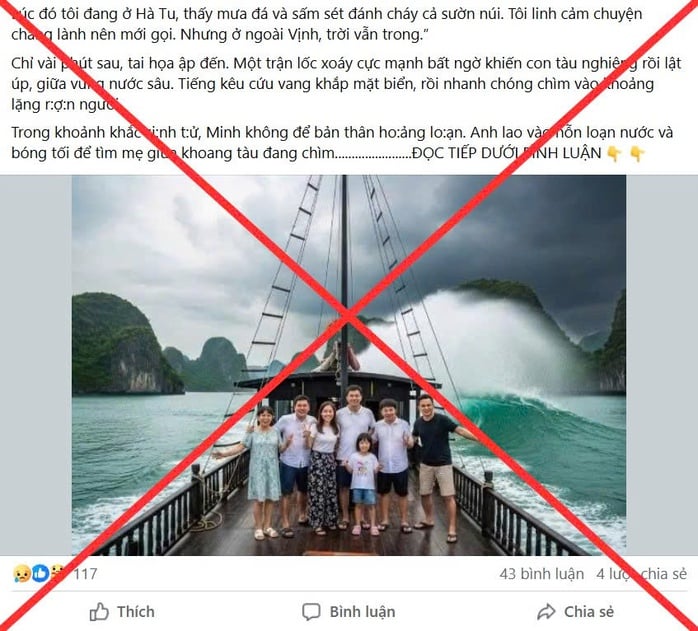

![[Photo] Deep sea sand deposits, ancient wooden ship An Bang faces the risk of being buried again](https://vphoto.vietnam.vn/thumb/1200x675/vietnam/resource/IMAGE/2025/11/13/1763033175715_ndo_br_thuyen-1-jpg.webp)






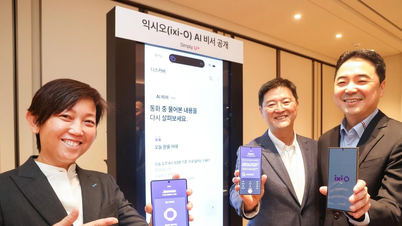










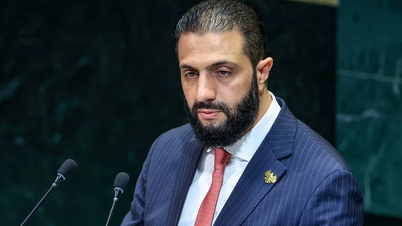
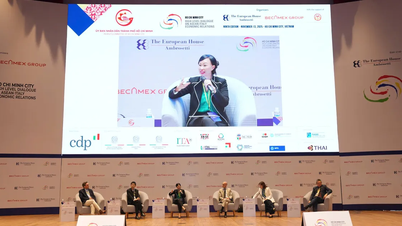








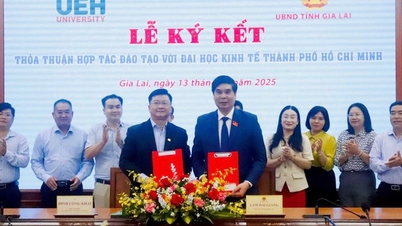


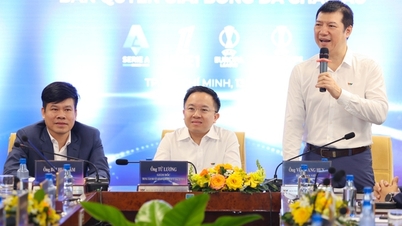








































![[Photo] Panorama of the 2nd Vietnam-Cambodia Border Defense Friendship Exchange](https://vphoto.vietnam.vn/thumb/402x226/vietnam/resource/IMAGE/2025/11/13/1763033233033_image.jpeg)
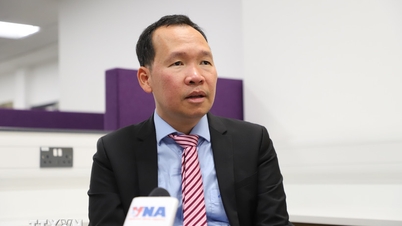

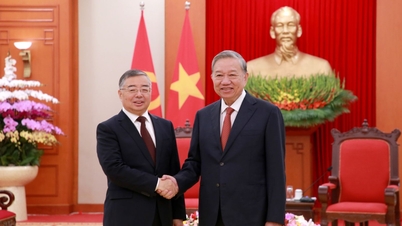

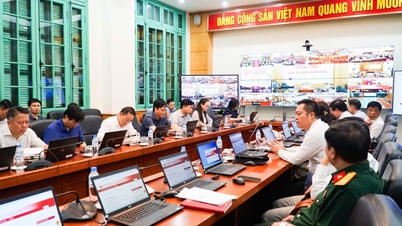

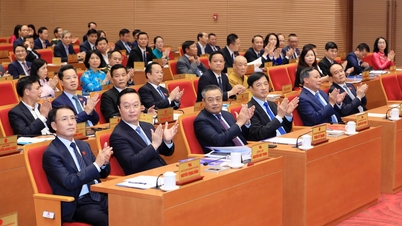

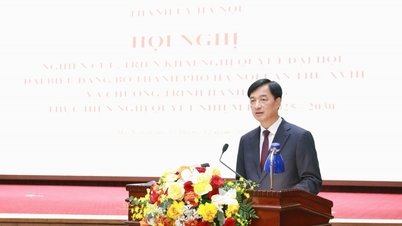
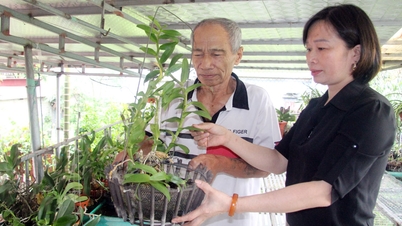





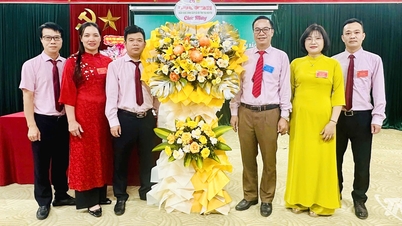

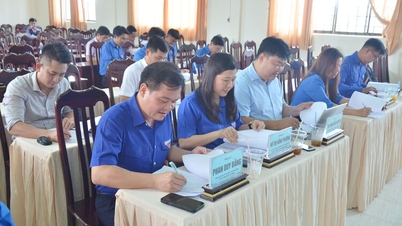







![Dong Nai OCOP transition: [Article 3] Linking tourism with OCOP product consumption](https://vphoto.vietnam.vn/thumb/402x226/vietnam/resource/IMAGE/2025/11/10/1762739199309_1324-2740-7_n-162543_981.jpeg)







Comment (0)